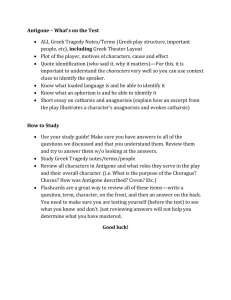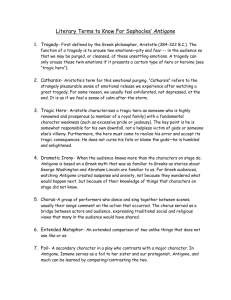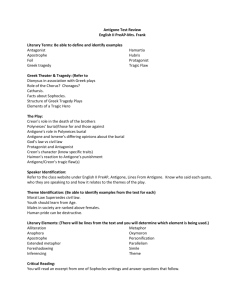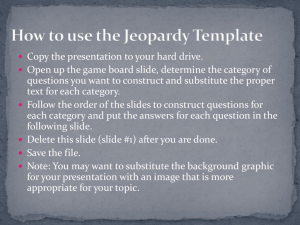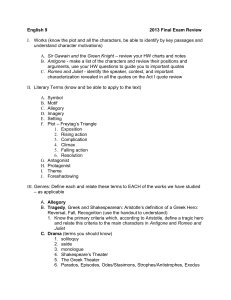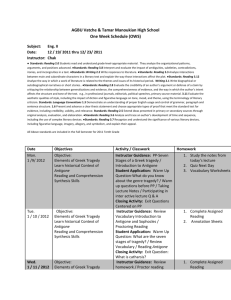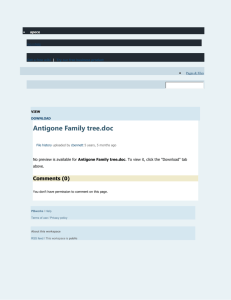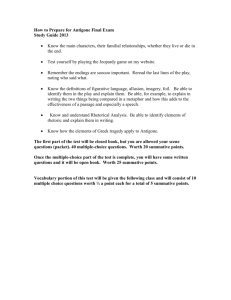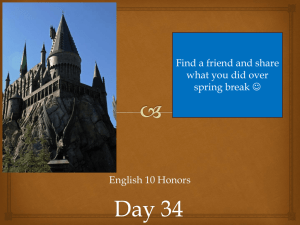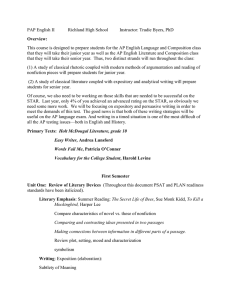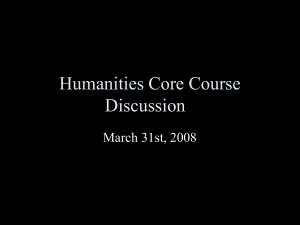Here is the review guide!
advertisement
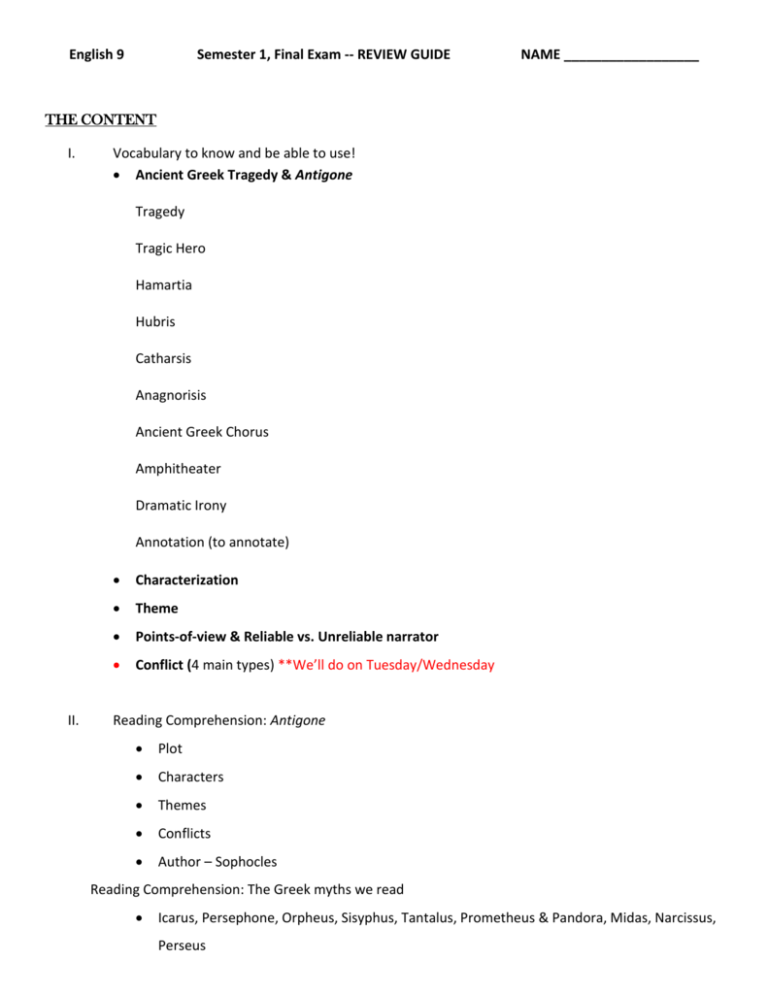
English 9 Semester 1, Final Exam -- REVIEW GUIDE NAME __________________ THE CONTENT I. Vocabulary to know and be able to use! Ancient Greek Tragedy & Antigone Tragedy Tragic Hero Hamartia Hubris Catharsis Anagnorisis Ancient Greek Chorus Amphitheater Dramatic Irony Annotation (to annotate) II. Characterization Theme Points-of-view & Reliable vs. Unreliable narrator Conflict (4 main types) **We’ll do on Tuesday/Wednesday Reading Comprehension: Antigone Plot Characters Themes Conflicts Author – Sophocles Reading Comprehension: The Greek myths we read Icarus, Persephone, Orpheus, Sisyphus, Tantalus, Prometheus & Pandora, Midas, Narcissus, Perseus English 9 III. Semester 1, Final Exam -- REVIEW GUIDE NAME __________________ Elements of Writing IV. Combining sentences (, ; : .), common commas, apostrophes, capitalization TE/EA structure Writing Process & feedback Figurative Language/literary devices V. Alliteration, simile, metaphor, onomatopoeia, personification, hyperbole, allusion Applying the Big Ideas – Written Responses based on Antigone - make and support claims around theme, characterization, and tragedy USING TE/EA structure TYPES OF QUESTIONS I. Vocabulary: Fill in the blank 1-2 sentence explanation of a term Giving examples of how the term is used in a text Reading Comprehension: Put key events in the order they happened Complete a family tree for Oedipus/Antigone Character/quotation identification Multiple choice questions Matching characters and their stories/what they are they mythically known for Elements of Writing: Multiple Choice questions Editing Figurative Language: Short answer definitions/identification Write your own examples Written Responses: TE/EA paragraphs II. III. IV. V.
